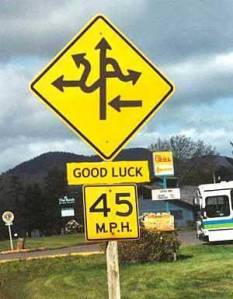
Robert was a guy who wanted something. You could tell.
He wanted what a lot of people want. He wanted his idea out there. He wanted to get noticed and get recognized and make a better living. As an accomplished amateur guitarist he loved music and created a service focused at musicians. But, he couldn’t seem to get much traction.
After looking at his business and his marketing efforts I noticed something.
It was just below the surface but it tainted just about every Robert did.
Stinginess.
I didn’t come right out and tell him this, “Hey, friend, you’re stingy. People hate that. It’s like client repellant.” But, I did ask him a few questions and he stumbled onto the conclusion himself.
They were these 2 transformative questions:
1. What are your doing out of pure kindness to your target group?
(What are doing to simply serve this group, without hoping for or gunning for something in return?)
2. Are you empathizing fully with your group and their needs?
( What are their biggest needs and how does that make you want to respond? What will you do about it?)
A big shift happened. A light in a dark room moment.
(That’s what I LOVE about good questions. They shift things.)
It was like a wall broke down for him. He started thinking. Really thinking. Then he starting looking through a new window (perspective & worldview). New options and possibilities came into view. Discouragement vanished.
Instead of being centered on scarcity and never having enough (money, clients, opportunities, options), Robert started remembering how much good he could do.
Doing good felt good. Soon, it actually made him a better person for it. This new spirit didn’t extend to just clients, but his friends and family benefitted as well.
The new generosity of spirit made all the difference.
His empathy supercharged his efforts.
His message got out better this way.
Here’s what happened:
He started offering some of his services for free, no strings attached. This was valuable. Several musicians caught on and passed along his information. One of those leads provided consistent income almost right away. Then he reached out to a few local non profit groups and gave them some great work for free. They gave him some positive public testimonials and a few direct referrals. (He wasn’t helping them so they could help him in return, but after he gave of himself so generously, they wanted to help him out.)
His old message came off like this: “I have something and you need it. You should want this.”
Result? Dead ends and closed spirits.
His new message consisted of actions that worked like a megaphone. They said, “I’ll come along side you. Everything will be fine. I got this. No worries.”
People started searching him out. He didn’t have to work as hard to be noticed because his actions were secret super powers.
• Empathy
• Kindness
• Generosity
It drew plenty of attention. The right kind of attention. People were happy to pay him because they saw more value in his service. The stingy people that didn’t want to fork over any money for the value he brought them faded into the background. The more he invested and gave to the 80-90% of the folks that valued him, the better things got.
CONCLUSION:
Remember your Secret Super Powers.
If you’ve hit a wall with a project there’s a simple fix: If promotion, marketing, exposure, or getting your message out has stalled in any way, revisit your levels of 1. empathy, 2. no-strings-attached-kindness, and 3. generosity.
Reinstitute a lot of that back into your efforts, let go of the wheel, and see what happens. These secret super powers only work best if you put your true heart into it and live it out fully.
They are fertile things that birth the same spirit and goodness back to you.
Now some questions for you…
What message are you trying to get out right now?
(A project, a book, an album, a class, a service, a product, etc.)
What’s a way you can be more empathic and generous?
(In that spirit, let this be your first bit of exposure. You can share that here, if you’d like.)
Now don’t forget to sign up for the next post! (Sidebar)
Or you can read the next one on RSS.
If you’d like to share the joy, please like this on FACEBOOK using the button below.
Thanks for visiting and thanks for being awesome.
-L







